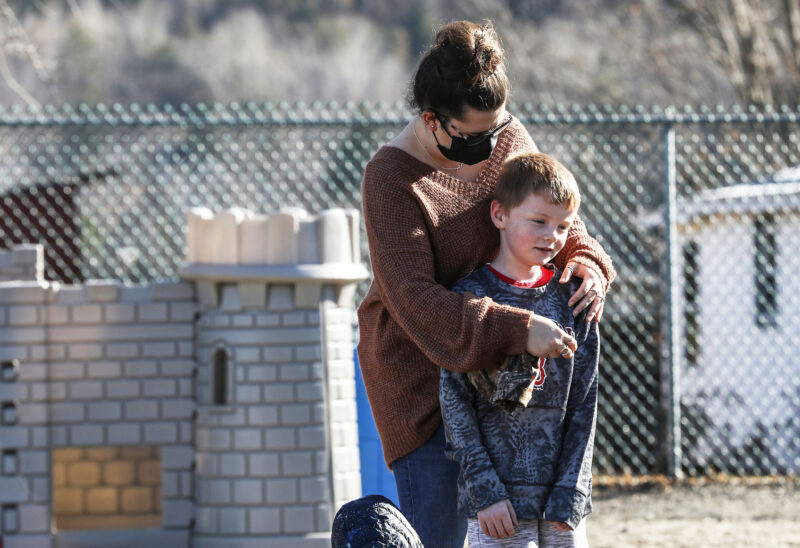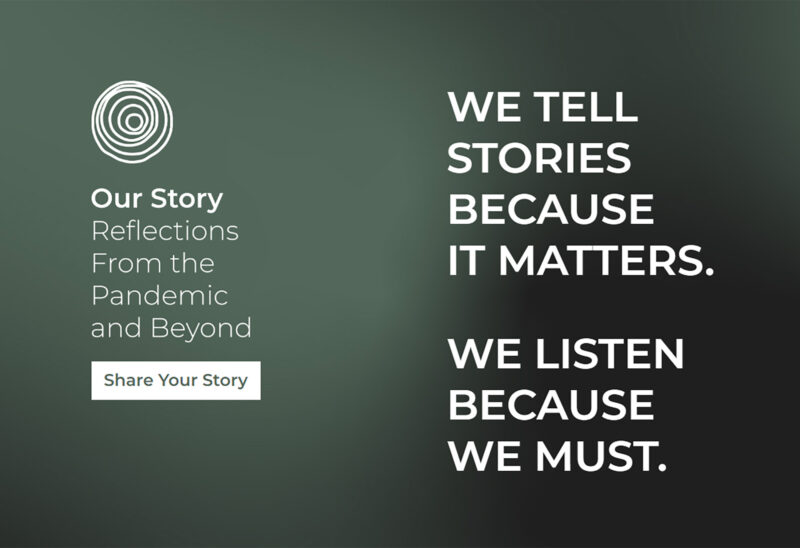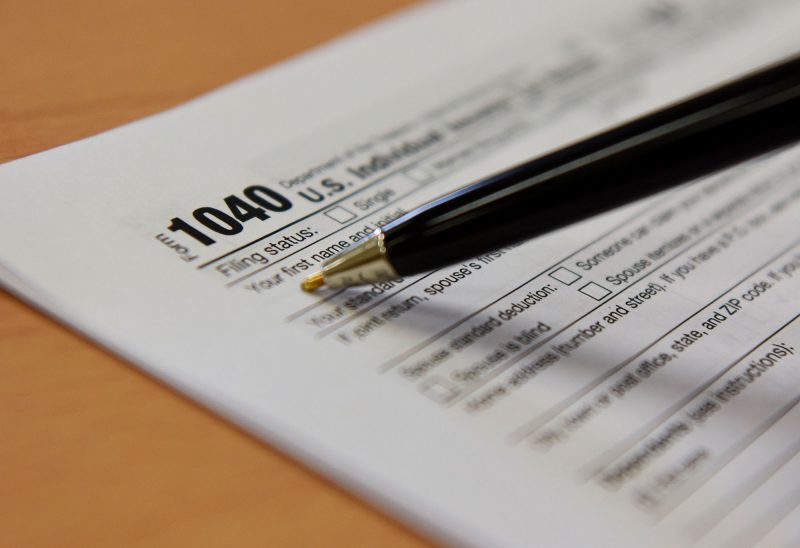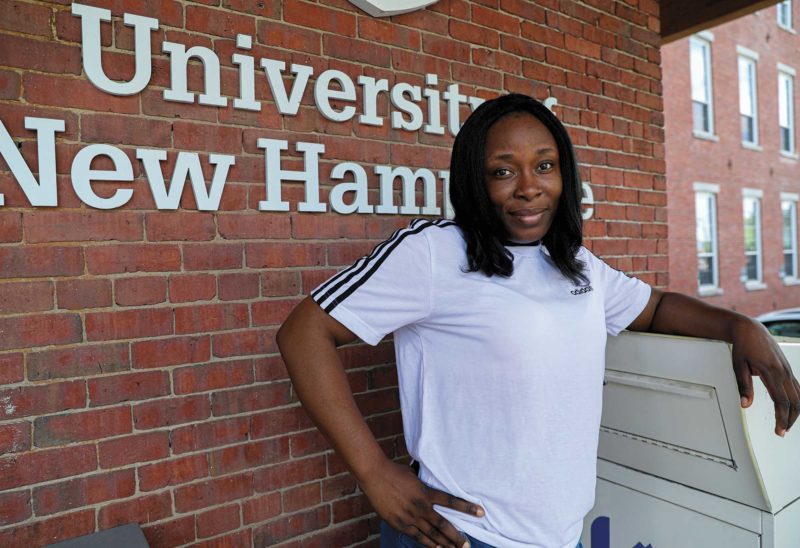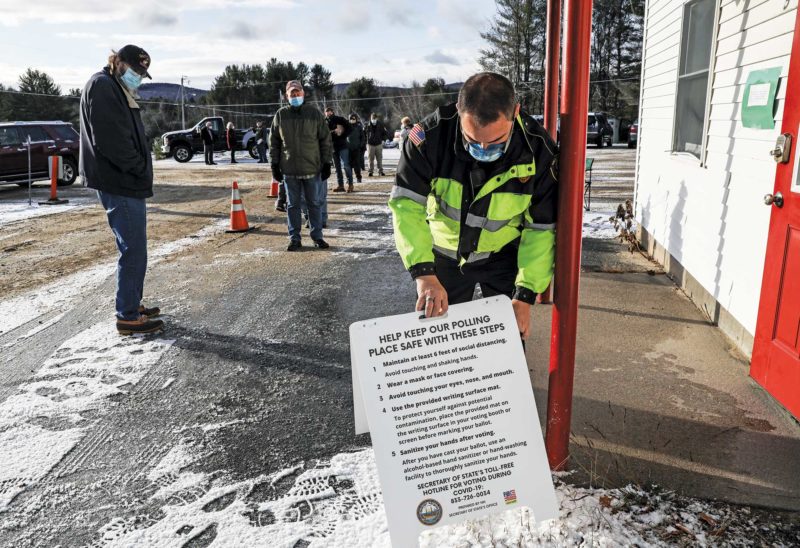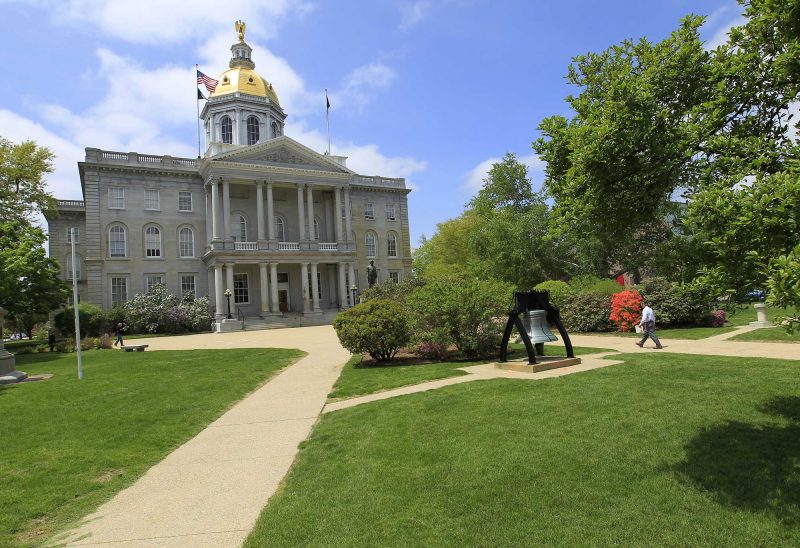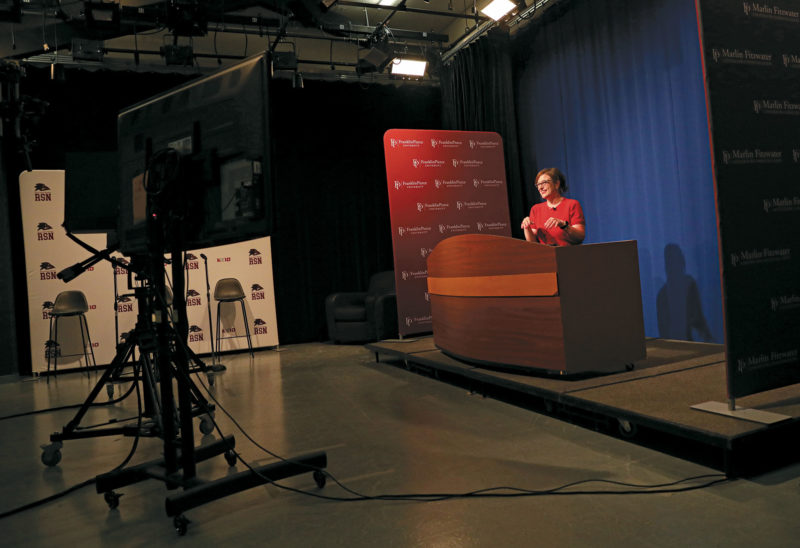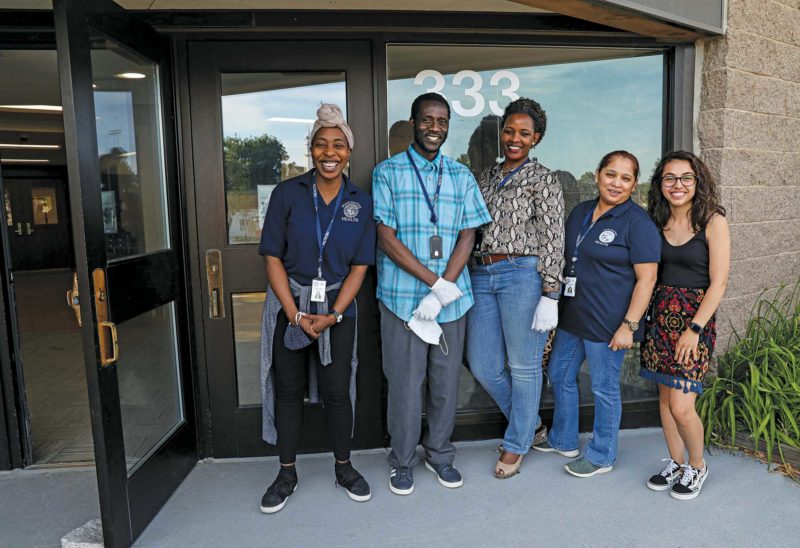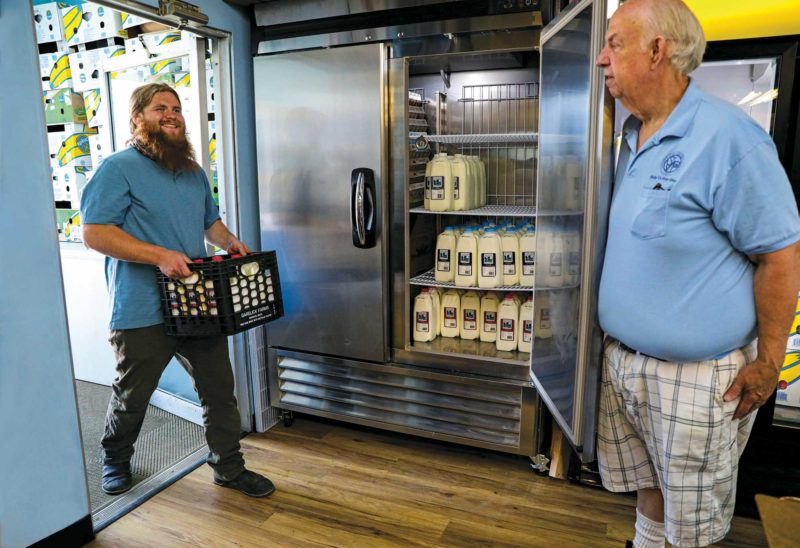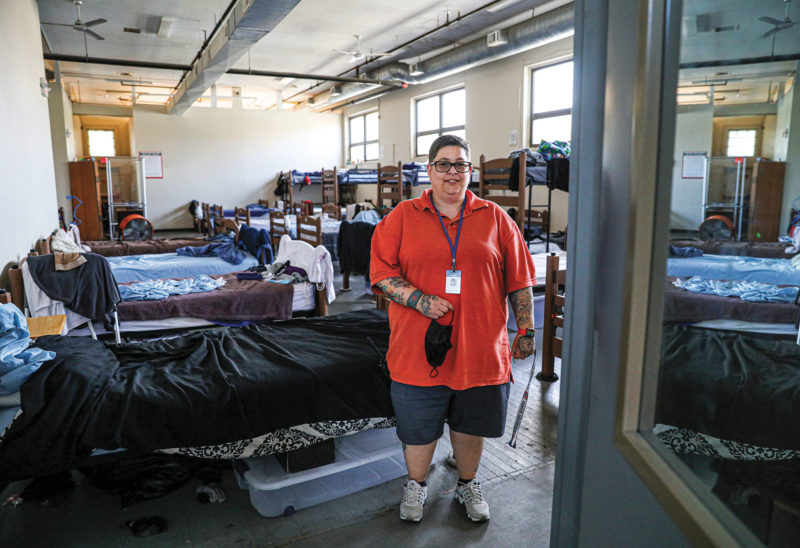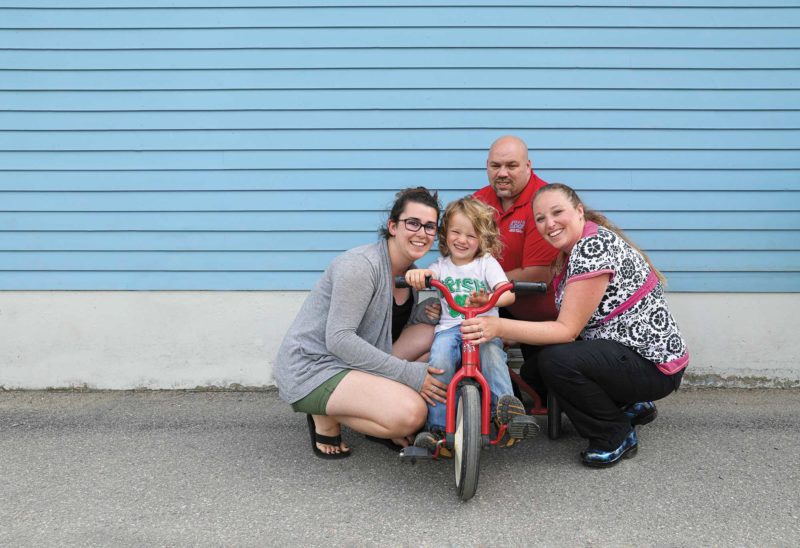When Sarah Mattson Dustin speaks of how COVID-19 has increased the need for services provided by New Hampshire Legal Assistance, she sounds almost like a public health official speaking of the virus itself.
Demand for help is increasing, she explains, with surges in some areas and other surges expected. At the same time, there is uncertainty about receiving the financial support needed to sustain a ramped-up response.
“We focus the legal aid we provide on the kind of civil cases that impact people’s basic needs,” said Mattson Dustin, executive director of NHLA.
“So, we are expecting a surge across all of our practice areas,” she said.
NHLA is a non-profit law firm that provides people with low incomes across New Hampshire with legal advice, representation and advocacy in non-criminal cases. Unlike in criminal cases, litigants in civil court have no guarantee of counsel, even when their homes, economic stability or personal safety are on the line. That is where Legal Assistance comes in.
Because of reduced income during pandemic-induced business closures, many more people have found themselves eligible for NHLA’s services. And more have found themselves in need of those services: Some face eviction or foreclosure as moratoria in place for the pandemic are lifted. Some are coping with domestic violence they couldn’t escape or report while sheltering at home. Others are trying to make sure their children’s education needs are met during remote learning.
Mattson Dustin said an unprecedented surge already is underway as NHLA helps clients secure unemployment benefits as the state deals with a staggering number of claims.
Unemployment
In all of 2019, NHLA received 35 requests from people requesting legal aid to access unemployment benefits they needed to stabilize their families and pay their bills. That number had already nearly doubled in the first six months of this year, mostly in April, May and June. At the current pace, the number of requests to NHLA in 2020 will be more than five times higher than it was last year.
Through June and into July, NHLA implemented new systems for clients with unemployment claims, working with the Legal Advice and Referral Center hotline and the New Hampshire Bar Association’s Pro Bono Program, in which attorneys in private practice volunteer to handle civil cases for low-income clients.
Now, they also are working on housing issues which they expect to increase as state-imposed bans on evictions or foreclosures expire and assistance through the state Housing Relief Fund runs out.
In addition, until the economy recovers, more people will need help from programs such as Medicaid, food stamps or other types of temporary assistance. NHLA is standing by to help clients if those programs become overburdened with new applicants, causing delays and other problems processing applications.
Housing
Mattson Dustin said the agency expects to see a surge of evictions in the next several months based on non-payment of rent and other factors. NHLA and its partners have been working with the court system to plan for how to manage the surge.
“We don’t want ever, but particularly during a public health emergency, to see people getting evicted who really shouldn’t be, whether there is a procedural error, or a substantive defense or if there’s a way for the person to get caught up on rent,” she said.
The pandemic cut many people off from their normal support systems, straining their mental health and sometimes creating tension with landlords. Legal aid can represent the tenants’ interest in accessing appropriate care and repairing that relationship.
To help with unemployment issues and the looming increase in housing cases, NHLA has hired two paralegals and applied for federal funding to hire three temporary attorneys as reinforcements through the end of the year.
Domestic violence
Mattson Dustin said the agency already is seeing an increase in requests for legal help from domestic violence victims during the early days of the statewide stay-at-home order. The question is whether they will return to pre-COVID levels or surpass them. When the state basically was shut down during the spring and entire families were at home most of the time, NHLA saw a drop in domestic violence legal requests. At first, domestic violence crisis centers also saw a decline in calls for help and feared that victims who were essentially forced to shelter in place with their abusers had no way to safely reach out. Those suspicions were confirmed by late spring, when stay-at-home orders eased and calls increased. NHLA lawyers have attended court hearings by telephone to represent clients asking for protective orders and to help with custody and visitation rights and child support.
“Those requests are definitely going back up again,” Mattson Dustin said. “We don’t know if we can assume there will be a spike; we’ll probably see things go back to previous levels.”
Education
After the typical summer lull in requests to help families facing education challenges, NHLA anticipates a larger-than-typical increase as the school year begins, especially if remote learning remains part of the education landscape.
Some services, particularly for students with disabilities, are nearly impossible to deliver remotely, and some families are not well-equipped to participate in online education. Civil legal aid attorneys or paralegal advocates help children, parents and educators identify trouble spots, solve problems and get back on the path to educational success.
Funding
As the Charitable Foundation focused on how the pandemic and economic fallout affects New Hampshire’s most vulnerable residents, it tripled its planned support to New Hampshire Legal Assistance, making a $75,000 grant from the Community Crisis Action Fund. The Foundation’s Neil and Louise Tillotson Fund also made a recent grant to help sustain the operations of NHLA’s office in Berlin.
NHLA has benefited from other new funding opportunities created to help respond to the pandemic, but Mattson Dustin is concerned about potential declines in donor gifts, support from the stressed state budget and from other traditional funders, especially as it continues to mobilize to meet the increase in demand for its services.
“It was apparent to us that things were going to quiet down for some unknown length of time and then surge on the other side,” Mattson Dustin said. “Right now, we are at the very beginning of the other side.”
Nonprofits need help more than ever to sustain operations and respond to community need. To give directly to support New Hampshire Legal Assistance, click here. If you are a fund-holder at the Charitable Foundation and would like to use your fund to address increased community needs during this time, please call 1-800-464-6641 and choose option three for donor services.








